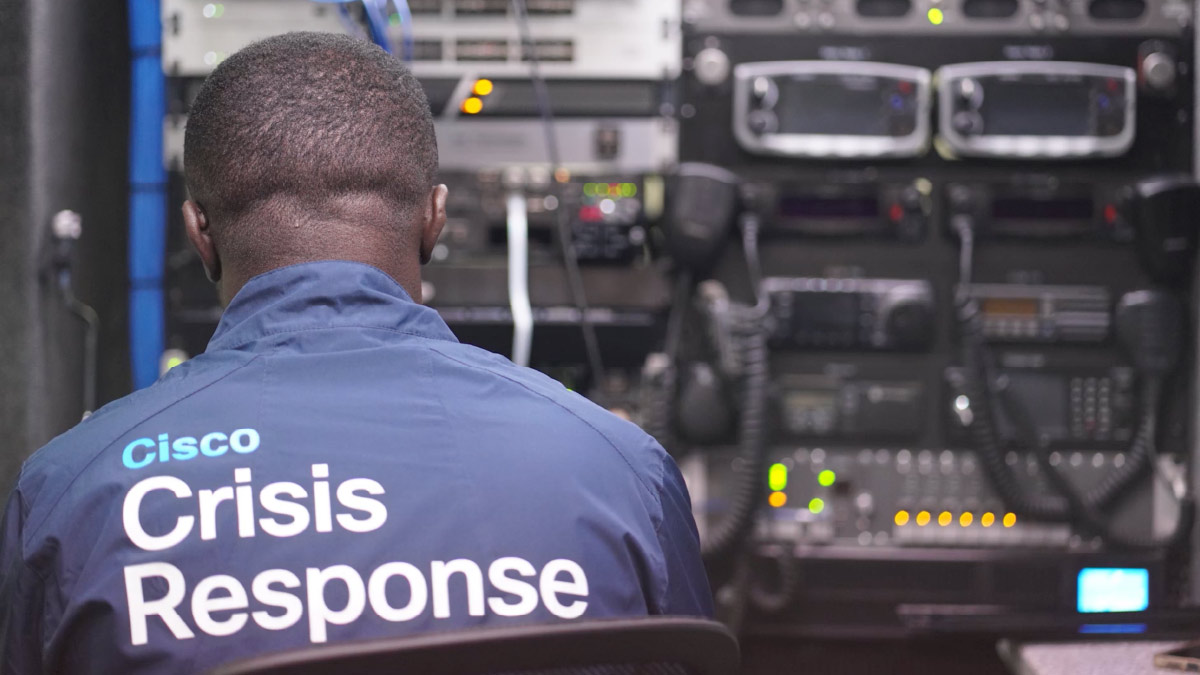SAN JOSE, June 12, 2013 – Cisco today introduced the Carrier Routing System-X (CRS-X), the newest addition to the industry-leading CRS Family, providing unmatched economical scale and lasting investment protection for more than 750 telecommunications service providers and organizations worldwide, including Verizon Wireless and SoftBank Mobile Corporation, that have deployed more than 10,000 CRS systems as the foundation of their network infrastructures.
The Cisco® CRS-X, which will be available this year, is a 400 Gigabit per second (Gbps) per slot system that can be expanded to nearly 1 petabit per second in a multi-chassis deployment. The CRS-X provides 10 times the capacity of the original CRS-1, which was introduced in 2004 as a new class of core routing system designed to scale network capacity to accommodate the proliferation in video, data and mobile traffic, which has taken place over the last decade.
With today’s telecommunications service providers facing multiple challenges – such as limited scale, separate optical and Internet Protocol (IP) networks, and architectural constraints – the CRS-X expands the industry’s most scalable elastic core networking platform. With 400 Gbps per slot density, the CRS-X multichassis architecture delivers unsurpassed scale using a 400 Gbps line card with Cisco AnyPort™ technology. The line card uses complementary metal oxide semiconductor (CMOS) photonic technology, called Cisco CPAK™, to reduce power consumption, reduce the cost of sparing, and increase deployment flexibility. For example, each interface can be configured for either single port 100 Gigabit Ethernet, 2x40 GE, or 10 x10 GE and either short-, long-, or extended-reach optics by selecting a specific CPAK transceiver. This flexibility simplifies network engineering and operations and helps ensure that service providers can meet the demand for 10 GE, 40 GE and 100 GE applications without replacing hardware.
Additionally, the CRS-X improves the simplicity and scale of IP and optical convergence. Service providers can now choose between deploying integrated optics or the new Cisco nV™ optical satellite. Both allow for a single IP and optical system that utilizes Cisco’s nLight™ technology for control plane automation. The nV optical satellite deployments operate as a single managed system with the Cisco CRS Family to reduce operational expense and deliver high-density 100 GE scaling.
The CRS-X delivers industry-leading capacity, cost-effective expansion and overall investment protection. By delivering a single system that has increased its capacity 10-fold in nearly 10 years, Cisco enables CRS customers to reduce their total cost of ownership by nearly 50 percent compared with the nearest competitive solution. Over this period, the CRS has delivered customers 80 percent power savings, as well as a 76 percent savings in transport costs. The CRS-X system has been architected to help ensure that more than 10,000 existing CRS-1 and CRS-3 systems in operation can be easily upgraded with minimal traffic impact. Current CRS customers can migrate to CRS-X capability with simple in-service replacement cards. They may also expand by adding CRS-X to existing multi-chassis deployments.
Highlights/Key Facts
- The Cisco CRS is the industry’s most robust, scalable, widely deployed multi-chassis core router. Line cards supporting 4x100 GE and 400 Gbps per slot allows for unmatched economical scale of 64x100 GE ports in one chassis with a total multi-chassis system capacity of nearly 1 petabit per second.
- The CRS-X 400 GE Line Card with Cisco AnyPort Technology uses Cisco’s CMOS photonic CPAK to reduce power consumption and increase 100 GE port densities by a factor of three compared to competitive solutions. CPAK technology also enables network operators to mix and match interface rates (10 GE, 40 GE, and 100 GE) and distances (SR, ER, and LR) within a single card.
- The CRS-X uses the IOS-XR software, a unique self-healing and self-defending operating system designed for “always on” operation while scaling system capacity.
- The Cisco CRS elastic core architecture delivers flexible scale, transport and services to help service providers minimize network complexity and maximize service monetization. Cisco nV Technology along with nLight Technology enables the optical transport equipment to be managed as a single entity, simplifying provisioning and network operations for dense 100 GE.
- Internet traffic growth has accelerated since the original CRS-1 routing system was introduced to the industry in 2004, as noted in the Cisco Visual Networking Index (VNI) Forecast (2012-2017), issued in May 2013. The most recent VNI predicts global IP traffic to grow threefold from 2012 to 2017, reaching an annual run rate of 1.4 zettabytes by the end of 2017, up from an annual run rate of 522.8 exabytes at the end of 2012. Traffic growth and complexity is driving convergence at the core of the network. Multiservice, multipath and multi-access traffic requires a core solution such as the CRS-X, which can support massive scale, continuous operation, cloud intelligence, carrier-grade network services, and IP and optical convergence.
Executive Quotes
Mike Haberman, vice president of network operations, Verizon Wireless: “The Cisco CRS provides Verizon Wireless with an intelligent core solution and the ability to scale up to 400 Gbps per slot, which will meet our service demands well into the future.”
Junichi Miyakawa, executive vice president, board director & CTO, SoftBank Mobile Corporation: “We are very pleased at the continued development of the Cisco CRS platform, which has served as the foundation of our advanced network infrastructure for many years. With the ability to scale to 400 gigabits per second and highly available architecture, the CRS continues to provide unparalleled investment protection and help ensure SoftBank Mobile’s ability to remain one of the leading broadband content and service providers in Japan.”
Surya Panditi, senior vice president and general manager, Cisco’s service provider networking group: “Cisco’s flagship networking platforms are designed with investment protection for decades and beyond, unlike other technology providers, which force operators to rip and replace their products on a regular basis. Service providers, large educational and research networks, and government agencies around the world are preparing for the next-generation Internet and the increasing demand for video, collaboration and distributed computing. Cisco CPAK technology and 400 Gbps per slot CRS-X demonstrate Cisco’s commitment to leading the industry in IP core technology and protecting the investment of our existing CRS customers.”
Embedded Photos
- Cisco CRS-3 Carrier Routing System
- Cisco CPAK 100G Optical Transceiver
Supporting Resources
·Cisco
·Cisco Service Provider Solutions
- Cisco Carrier Routing System
- Cisco Visual Networking Index home page: http://www.cisco.com/go/vni
·Read the complete Cisco Visual Networking Index (VNI) Forecast, 2012-2017
- Watch: Executive Message: Extending the Elastic Core Video
- Read: Cisco SP360 Blog
Tags:
Cisco, Carrier Routing System, CRS, CRS-3, CRS-X, Internet Protocol Next-Generation Network, IP NGN, Visual Networking Index Forecast, VNI, 100GE
RSS Feed for Cisco: http://newsroom.cisco.com/dlls/rss.html
About Cisco
Cisco (NASDAQ: CSCO) is the worldwide leader in IT that helps companies seize the opportunities of tomorrow by proving that amazing things can happen when you connect the previously unconnected. For ongoing news, please go to http://thenetwork.cisco.com.
# # #
Cisco and the Cisco logo are trademarks or registered trademarks of Cisco and/or its affiliates in the U.S. and other countries. A listing of Cisco's trademarks can be found at www.cisco.com/go/trademarks. Third-party trademarks mentioned are the property of their respective owners. The use of the word partner does not imply a partnership relationship between Cisco and any other company.








